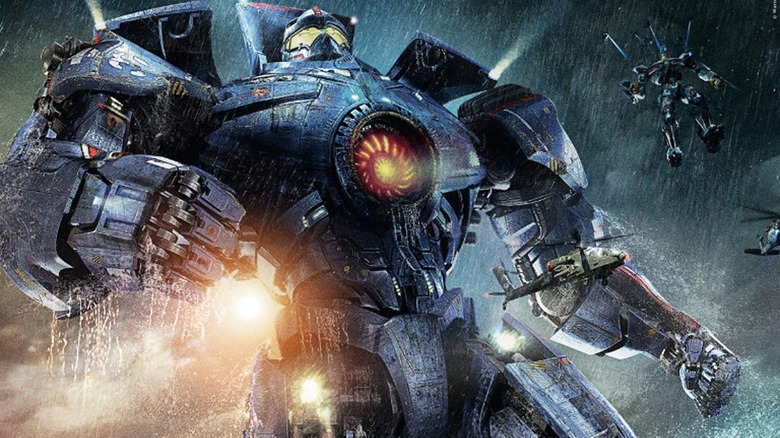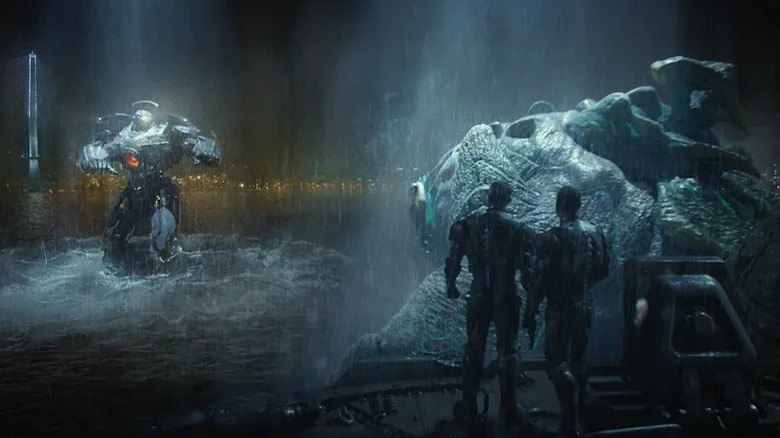“Pacific Rim” is one of the best American blockbuster movies of the 2010s … or one of the best kaiju movies ever … or even one of the best live-action anime movies not based on a specific anime (but still clearly inspired by “Patlabor” and “Tetsujin-28”). It’s also a hugely important movie for filmmaker Guillermo del Toro and an essential part of the Oscar-winner’s filmography. After all, “Pacific Rim” was both his first original English-language script and his first original film in seven years — not to mention the film that marked his transition into a full-time Hollywood director.
Still, as successful as the movie was, and as much as it depended on del Toro’s unique visual style and imagination, a sequel (titled “Pacific Rim Uprising”) was made without his involvement, meaning his original ideas for “Pacific Rim 2” were all scrapped. And though it seems unlikely that a third “Pacific Rim” will ever get made, the universe of “Pacific Rim” continues.
According to Variety, Legendary Entertainment is now developing a “Pacific Rim” origin story TV series with Eric Heisserer at the helm. This makes some sense in light of the success of “Monarch: Legacy of Monsters,” itself a prequel series (of sorts) to a popular kaiju movie franchise. Still, Heisserer’s track record isn’t that great. Though he wrote the incredible Oscar-nominated “Arrival,” his other feature writing credits aren’t as hot, including the Vin Diesel comic book movie “Bloodshot” and the remake of “A Nightmare on Elm Street.” On the TV side, Heisserer previously developed Netflix’s “Shadow and Bone,” a show that started out great but quickly lost steam. No matter how many great ideas they have, the truth is no “Pacific Rim” project works without del Toro playing a major creative role.
Pacific Rim without Guillermo del Toro doesn’t work
Granted, some of del Toro’s original concepts for the greater “Pacific Rim” franchise sounded rather wild, including a “Battlestar Galactica”-esque time-travel plot. He also seemed obsessed with expanding the alien parts of his world through The Rift. Still, these ideas might’ve worked simply because del Toro would’ve been the one executing them. The first “Pacific Rim” movie succeeded because it was no mere pastiche of kaiju and mecha stories, but an original story that only del Toro — who grew up digesting anime like “Mazinger Z,” shows like “Ultraman,” and movies like the “Godzilla” franchise, all the while developing his own love of monsters and specific visual style — could tell.
Expanding the “Pacific Rim” franchise could only work if del Toro was able to do what James Cameron is doing with “Avatar” and take us to increasingly more alien worlds while introducing wilder and wilder ideas — although del Toro’s notion for a kaiju hybrid did come to pass in the Netflix anime series “Pacific Rim: The Black.” An origin TV series without him, on the other hand, threatens to take the easy route of just delivering more mecha/kaiju fights and expanding the universe in a franchise-friendly way, as opposed to genuinely exploring what makes this property cool in the first place.
More on the “Pacific Rim” prequel series as the story develops.









